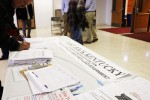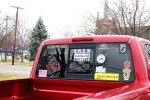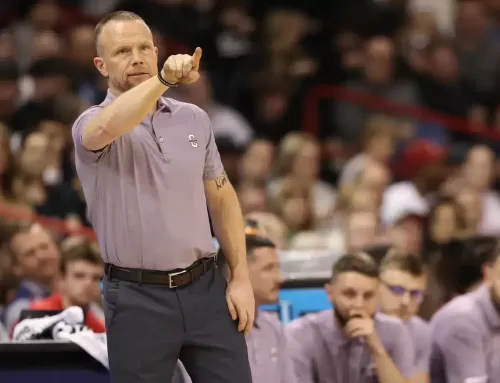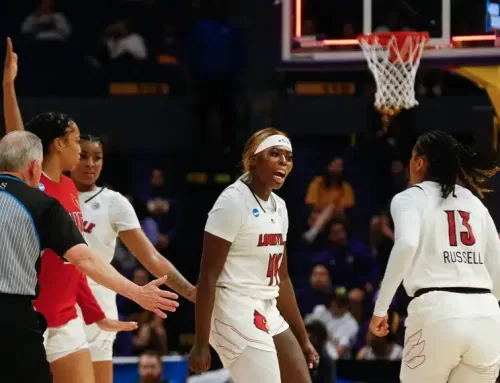By Phillip Lentsch–
GOP frontrunner Donald Trump ousted Texas Senator Ted Cruz by four percent in Kentucky’s first Republican caucus March 5.
Trump’s triumph in Kentucky came four days after a rally he held at the Convention Center in downtown Louisville. The assembly of committed Trump supporters and outspoken protestors showcased an important divide in the 2016 presidential election.
Trump also won Louisiana that evening, marking a crucial bounce back for him after Cruz won both Maine and Kansas earlier that week. Of Kentucky’s 120 counties, Trump ended up taking 79 to Cruz’s 41.
Prior to 2016, the Kentucky Republican party had voted alongside Democrats in a primary election in late May. In August 2015, the party voted to shift their nominating event to a March caucus – which was initially intended to serve as a springboard for Kentucky Senator Rand Paul’s White House bid. Paul dropped out of the race due to lack of funding and low poll numbers in early January, leaving his home state up for grabs.
“A lot of voters were particularly excited to take part in an early phase of the presidential election and have more significance,” U of L sophomore Robert Gassman said, who also served as a caucus official at the Greenwood Elementary School site.
“Kentucky Republicans wanted to have more of a relevant vote in this election because of Rand Paul’s candidacy, so that’s why this caucus is so much earlier compared to previous years,” U of L junior Jacob Abrahamson said. Abrahamson served as a caucus official at Iroquois High School.
Abrahamson estimated turnout would total out to be 15 to 17 percent, and he was correct – 17.9 percent of registered Republicans voted in the caucus, not much of improvement from previous years. Trump had 36 percent of the vote, barely edging out Cruz at 32 percent. Jefferson County proved to be an important bloc of voters due to its size.
“Jefferson County has the most Republican voters in the state when looking at sheer population, so that’s why we have nine caucus locations,” U of L senior Kevin Grout said. Grout was the caucus chair for the Iroquois High School venue.
Trump dominated in the southern and eastern parts of the state, mainly due to his stance on coal. Voters in the region have opposed President Barack Obama’s environmental policies that threaten the coal industry. At his rally on March 1, Trump promised to revitalize coal country if he were elected.
“The coal industry is going to make a very big comeback,” Trump said.
Bret Schultz, who caucused for Trump at the Iroquois High School location, was pleased with Saturday’s turnout. According to him, numbers were good at Iroquois from the moment doors opened at 10 a.m., and he felt as though he saw copious amounts of Trump supporters.
“In my personal opinion, Donald Trump isn’t a mainstream politician that promises the world and then can’t deliver,” Schultz said. “The definition of insanity is doing the same thing over and over again and expecting different results. We’ve been electing the same officials for years and years, and it’s gotten to the point where nothing can be done.”
Trump, Cruz, Rubio and Kasich are the four remaining GOP candidates. Mississippi, Idaho and Michigan all have primary elections on March 8 that will be close races, as well as the Hawaii caucus that same day.
- Photo by Sarah Rohleder
- Photo by Sarah Rohleder
- Photo by Sarah Rohleder
- Photo by Sarah Rohleder










